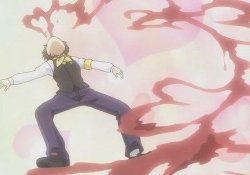Dragon Quest (ドラゴンクエスト), or Dorakuê (ドラクエ) as it is affectionately nicknamed, is an extremely popular role-playing game series in Japan. Dragon Quest is probably the most popular Japanese role-playing game in the country, given that in the West the Final Fantasy series is usually better known.
DQ's popularity is so great in the land of the rising sun that you can often see dolls, advertisements and franchise-related items in various locations and stores across the country. Countless children, young people and adults are passionate about the series' games and it's hard to find a Japanese person who doesn't know or hasn't heard about Dragon Quest.
Índice de Conteúdo
History and Origin of Dragon Quest
Dragon Quest was created and designed by Yuji Horii (堀井雄二) in the 80's, having its first version released in May 1986. Currently, it already accumulates a huge amount of spin-offs, books, manga, animes, encyclopedias, dolls, plushies, collector's items and anything else you can imagine.
Counting from the original series (not counting the extra games, specials and spin-offs) the game already has eleven versions, the last one (Dragon Quest XI) released in 2017.
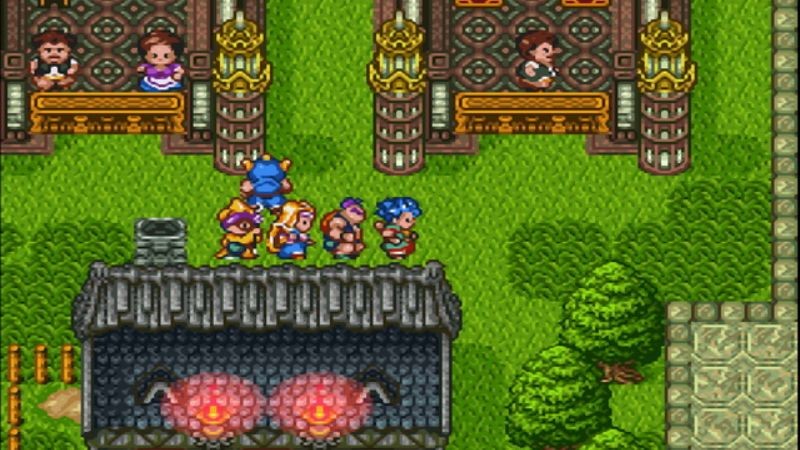
The first versions of Dragon Quest were present on Nintendo consoles of the 80s and 90s (until more or less Dragon Quest VII) and then migrated to the more modern consoles of PlayStation 2 (Dragon Quest VIII) and finally to the current Switch. and PS4 (Dragon Quest XI). Currently, there are also versions for mobile and PC.
Millions of copies of the game have already been sold in Japan. The popularity grew considerably after the release of Dragon Quest III (one of the best in my opinion) and with the popularization of RPG games in the world.
Because of this, the West adapted the first versions for Brazil and the USA using the name Dragon Warrior, to avoid possible confusion with games of the same name.
To give you an idea of the importance of this Square Enix franchise within the Geek Culture and within Japanese society in general, the Japanese government already came up with a plan to change the release date of DQ games, given that many people were missing work or school to play, and this was negatively impacting the country's economy.
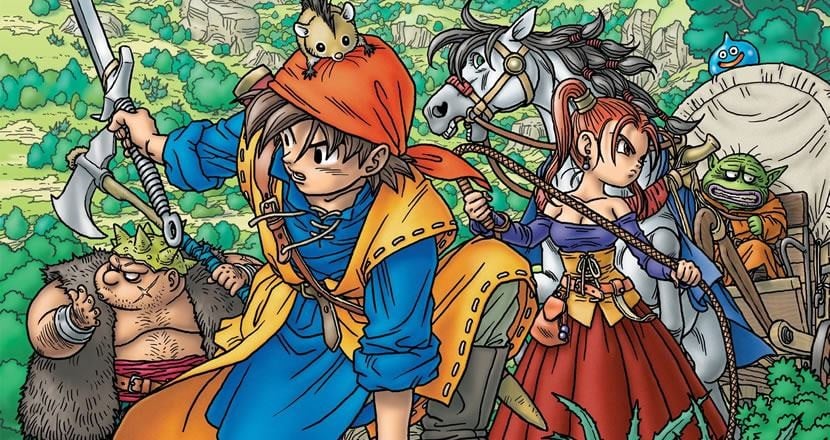
Slime: The popularity of the mascot
The Slime character has practically become the game's mascot for being the only monster that appears in all editions. The creature's design was based on a simple drop of water and pleases the Japanese for the kawaii characteristic of the animal.
In most versions of Dragon Quest, Slime is a weak, easy-to-defeat monster that often appears at the beginning of the quest. However, in later games, new types/species of Slime begin to emerge. Some of these slimes that spawn throughout the other games are stronger and give the character more experience points.

The Metal Slime, for example, is much rarer to appear and when it does appear it is much more difficult to defeat it. Upon defeating this specific type of Slime, one is rewarded with a large amount of XP. Other Slimes are introduced throughout the series, such as King Slime, Slime Knight and Shell Slime.
The variety of subtypes that appear throughout the infinite maps is something amazing, not to mention that it makes the game even more interesting and fun.
The character is also one of the favorites in terms of marketing, see the amount of plush toys, dolls, backpacks, balls, slippers, food and utensils featured with the creature. The amount is considerably large compared to products adorned by other monsters in the game.
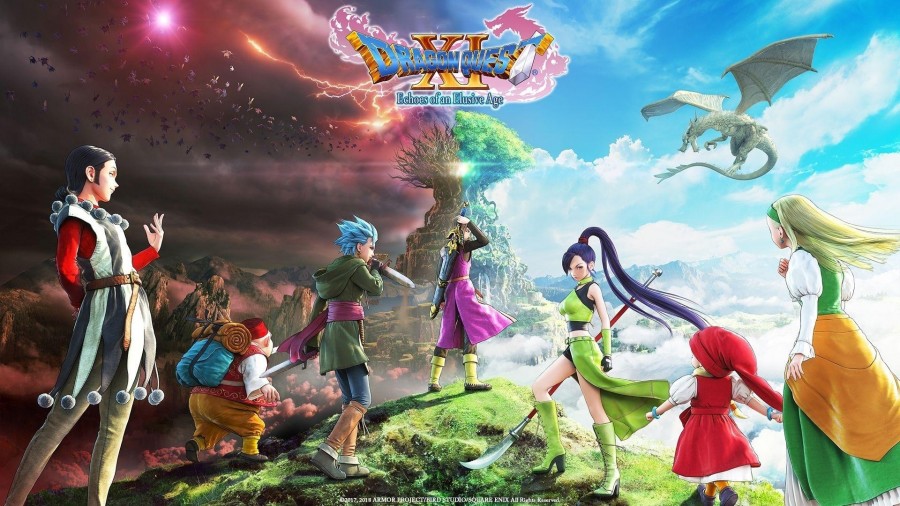
The excellent soundtrack
Another incredible aspect of the games in the series is the beautiful soundtrack composed by Koichi Sugiyama. Below, you can listen and enjoy the songs composed by him:
In addition to being extremely talented, Sugiyama was also known for getting involved in polemics and controversies related to political opinions and is often considered a revisionist (someone who attributes different ideas about different historical events).
Koichi Sugiyama (椙山浩一) is currently 89 years old and active. In fact, the composer is already working on the soundtrack for Dragon Quest XII, which will be released soon.
The Japanese composer and conductor is a very famous name in the musical and artistic field, having contributed not only with the soundtracks of Dragon Quest, but also with the music of several anime, such as Cyborg-009.
The article is still halfway through, but we recommend also reading:
The Dragon Quest Monument
In celebration of the game's 30th anniversary in 2017, Square Enix erected a monument honoring the overwhelming success that DQ has achieved in the country. The monument is erected in Hyogo, more specifically on Iwaji Island, birthplace of Yuji Horii (the creator of the series).
If you have the opportunity to play at least one game in the series, you will not regret it, as it will be fun for sure.
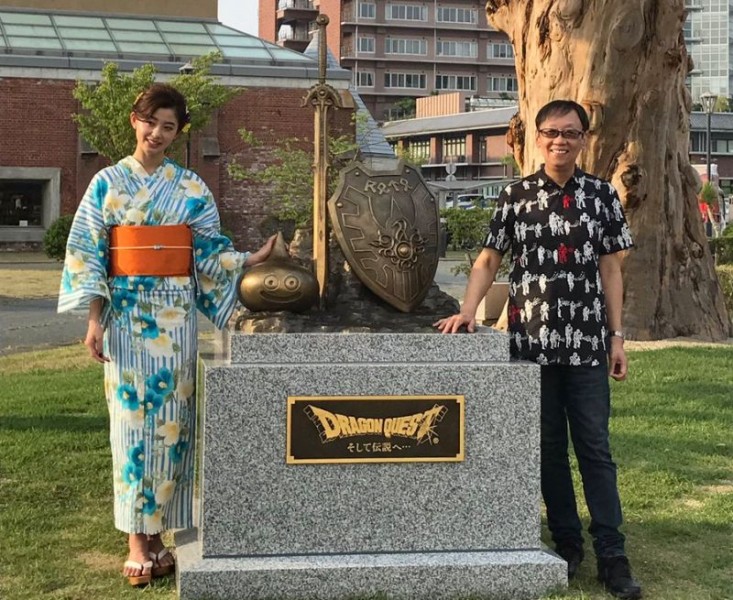
Dragon Quest Vocabulary
- ドラクエ = Dorakuê (apelido pelo qual DQ é conhecido no Japão);
- ドラゴンクエストIIIそして伝説へ… = Dragon Quest 3: E a lenda continua (tradução livre);
- スライム = Slime;
- 冒険 (ぼうけん) = Aventura, risco;
- 大冒険 (だいぼうけん) = Grande aventura;
- 魔王 (まおう) = Demon King;
- オーブ = Orbe;
- 魔物 (まもの) = Monster, creature;
- Tool
- Spells;
- Ataque;
- Equipment;
- 防具 (ぼうぐ) = Defensive gear;
- Armor;
- Escudo;
- 服 (ふく) = Clothing;
- 薬草 (やくそう) = Medicinal herb
- 杖 (つえ) = Staff, cane, rod, stick;
- Coroa;
- 闇 (やみ) = Darkness;
- 光 (ひかり) = Light;
- 王国 (おうこく) = Kingdom;
- Soldier;
- Battle (たたかい) = Fight, war;
- 闘い (たたかい) = Battle, fight;
- 剣 (けん) = Sword;
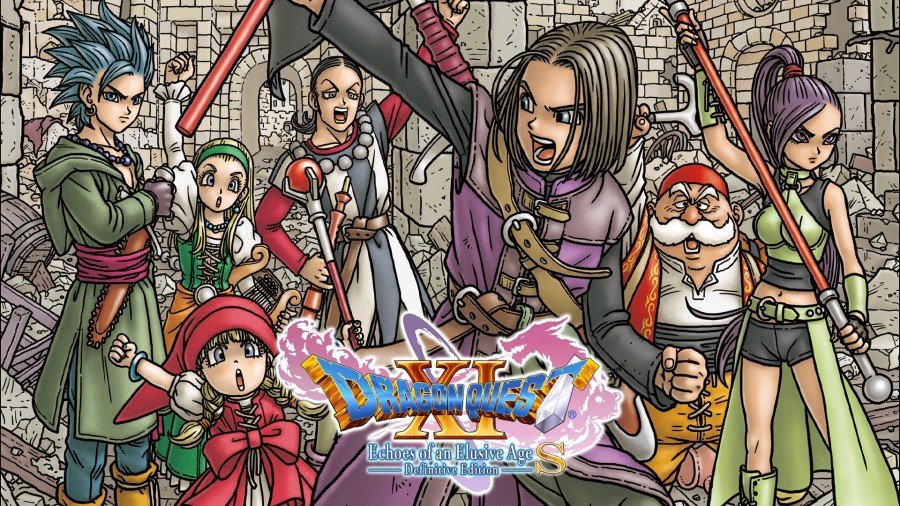
Post Written by: João Victor Gadelha




